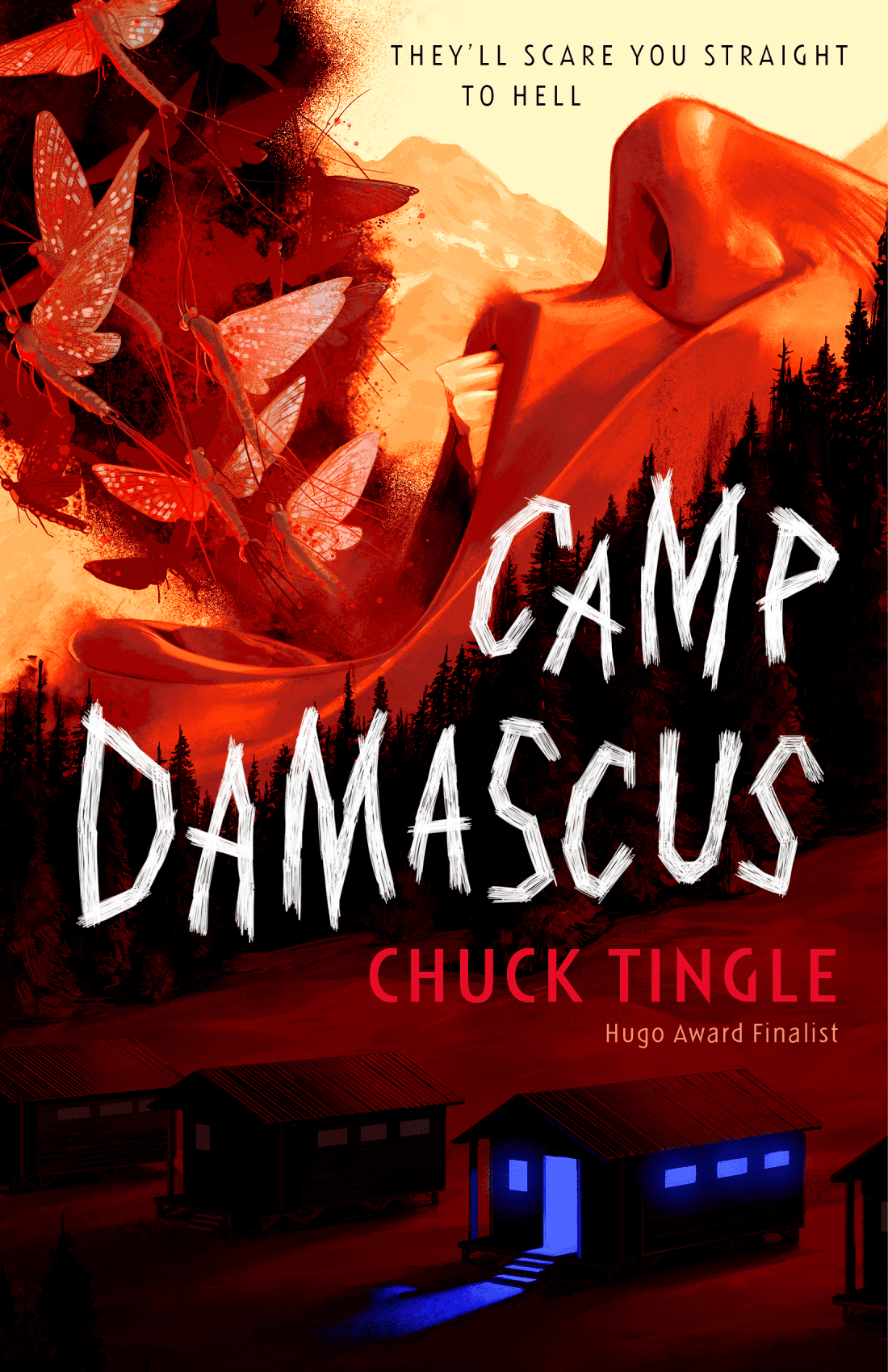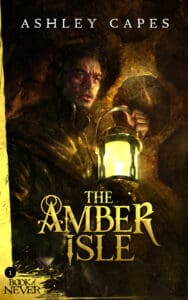
Synopsis
A searing and earnest horror debut about the demons the queer community faces in America, the price of keeping secrets, and finding the courage to burn it all down.
They’ll scare you straight to hell.
Welcome to Neverton, Montana: home to a God-fearing community with a heart of gold.
Nestled high up in the mountains is Camp Damascus, the self-proclaimed “most effective” gay conversion camp in the country. Here, a life free from sin awaits. But the secret behind that success is anything but holy.
Review
Love is real, and Chuck Tingle’s Camp Damascus is proof of such a concept. Lots of folks have spoken to the power of this book (more eloquently than me in most cases) given it was released some time ago, but this is the kind of story that deserves constant conversation. Apologies for the tardiness, but let’s talk about all the ways in which Tingle proves love is indeed real.
Rose is a twenty-year-old woman who is a member of the Kingdom of the Pine congregation, a church founded on strict beliefs and staunch principles. Despite her age, Rose is still considered to be in high school; part of their time with the church mandates two years of service outside of traditional schooling. This is very much reflected in certain aspects of her maturity and the sheltered life she lives under her parents’ roof. While Rose is a rule follower, she is also innately curious. She wants to know the how and why of things, something that is deemed sinful in the eyes of the church. However, strange occurrences prompt multiple revelations for Rose, putting her at odds with her church, family, and parts of herself at times. Further investigation proves there is more than meets the eye at Camp Damascus, the most successful gay conversion camp in the country.
Camp Damascus is not a shy book by any means and confronts the horrors of organized religion, homophobia, and cults without flinching. In the main character of Rose, we find a woman who has followed all the rules, the epitome of holy and devout. And while this is viewed positively by her church community and family, it’s a bit hard to stomach. No secular television, no secular music, no caffeine, no door to her bedroom. While Rose strictly adheres to these rules at the beginning of the novel, we see that it’s still never enough. She’s criticized by her own family for her intelligence and curiosity to understand the general workings of the world around her. In the eyes of the church, Rose is a clear and present danger no matter how deeply she pledges herself to its mission of purity.
It’s only when demonic forces enter the scene that Rose clings to her curious streak for dear life. The horrific premise and reasoning for these demons crafted by Tingle is not something I’ve come across before in such a succinct and illustrious way. This implication is used as a vehicle to enforce ideas of suppression and compliance, something that thrives at the root of evil. The progression of events throughout the novel reveals the nefarious agenda of the church giving perfect reasoning behind their desire to quash any sense of questioning of their members. The vast reach of such an institution and the levels of “brainwashing” (for lack of a better term) through the weaponization of its self-proclaimed dogma are the real subjects of horror in this story.
While I could continue to scream from my soapbox the harm in these institutions and the deletion of individuality that Tingle manages to describe so clearly in this story, the greater message of Camp Damascus is one of love. The terrible entities, people, and ideas that Rose confronts are not done in a solitary fashion. She finds a family of her own in other people who have suffered from this same trauma and who rally together to bring an end to the terror. More importantly, Rose finds herself and even begins to reference her own convictions as gospel, quite literally. Rose’s character arc is perhaps one of the most beautiful realizations I’ve experienced. While she used to entertain ideas of judgment by citing scripture as solutions to problems, the end of the novel marks a welcome change in her cognition. Rose says,
“It’s not about the solution, because the question is flawed. There’s nothing deviant about me… [Referencing herself] I’d love her.”
While Chuck Tingle’s Camp Damascus exposes the harmful ideologies often at play within organized religion, the greater message of this story is love: love for oneself, love for others, and love in spite of oppression. Tingle writes this story with a sense of realization and humor in convergence with the threat of real evils set on inflicting pain and suffering. This balance lends itself to a tale of growth, compassion, and self-discovery. While Camp Damascus is a horror novel on many fronts, it proves over and over that love is very, very real.









Leave a Reply